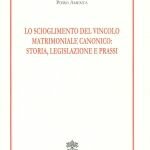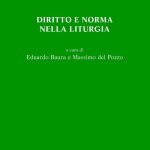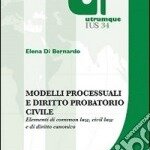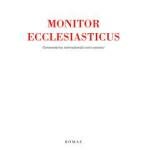Houston, 78th Annual Convention CLSA: “Collegiality and Synodality”

On the day of his election, Jorge Bergoglio – Pope Francis – did as Pope Saint John Paul II had done on the day of his election thirty-five years before: he did not refer to himself as the Successor Peter, but rather as Bishop of Rome. Pope Francis’ point of departure, however, was that he did so in starkly relational terms: “And now, we take up this journey: Bishop and People. This journey of the Church of Rome which presides in charity over all the Churches. A journey of fraternity, of love, of trust among us”.
A tone was set that evening in March, one that would be repeated over and again, becoming somewhat programmatic when the Holy Father addressed a celebration commemorating the fiftieth anniversary of the institution of the Synod of Bishops on the 17th of October, 2015. He said:
“From the beginning of my ministry as Bishop of Rome, I sought to enhance the Synod, which is one of the most precious legacies of the Second Vatican Council … It is precisely this path of synodality which God expects of the Church in the third millennium”.
For Pope Francis, the very name “synod” means a “journeying together.” A synodal Church is one “which listens … a mutual listening in which everyone has something to learn. The faithful people, the college of bishops, the Bishop of Rome: all listening to each other.”
Synodality is a “constitutive element of the Church … the most appropriate interpretive framework for understanding the hierarchal ministry itself.” Indeed, “Church and Synod are synonymous”.
In that presentation Pope Francis indicated how synodality occurs on three levels. The first “is had in the particular Churches,” in the Diocesan Synod and “organs of communion” including the presbyteral council, college of consultors, chapters of canons, and pastoral councils. The second level is that of “Ecclesiastical Provinces and Ecclesiastical Regions, Particular Councils and, in a special way, Conferences of Bishops.” The third and final level is that of the universal Church, where the Synod of Bishops “becomes an expression of episcopal collegiality within an entirely synodal Church.” Here, he makes reference to the “conversion of the papacy” he called for in para. 30 of his apostolic exhortation Evangelii Gaudium.
We can say that “collegiality refers to the Pope governing the Church in collaboration with the bishops of the local Churches, respecting their proper autonomy. Synodality is the practical expression of the participation of the local Church in the governance of the universal Church, through deliberative bodies” (“Synodality, collegiality: two keys to the coming Francis reform.” See https://cvcomment.org/2013/08/28/synodality-collegiality-two-keys-to-the-coming-francis-reform/).
The Holy Father declared himself “committed to build a synodal Church.” It is, he declared, “a mission to which we are all called, each with the role entrusted [him/her] by the Lord.” The implications for canonists are enormous.
The Seventy-eighth Convention of Canon Law Society of America picks up where the Seventy-seventh ended: by delving deeper into the structures borne of communio with the twin “keys” of collegiality and synodality.
(From 2016 Convention Brochure)
78th Annual Convention
Canon Law Society of America
October, 10-13, 2016
Houston, Texas (United States)
Registration is now open! Here
.



![ecclesiaspeculumiustitiae[1]](/wp-content/uploads/2016/10/ecclesiaspeculumiustitiae1-150x150.jpg)





Lascia un Commento